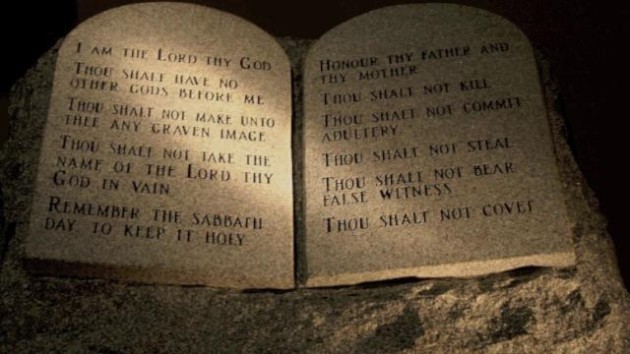The Most Misunderstood of the Ten Commandments
Translations have confused God’s name. The preface to the Goodspeed Bible offers this explanation—“In this translation we have followed the orthodox Jewish tradition and substituted ‘the Lord’ for the name…wherever [the reader] sees LORD or GOD.” This is true of nearly all translations!
Consider Isaiah 42:8 in these translations—
- “I am the LORD, that is my name.” King James Version
- “I am Jehovah, that is my name” American Revised Version
- “I am Yahweh, that is my name.” Jerusalem Bible
When the apostle Paul saw an idol to the unknown god on Mars Hill, he told them, “the times of this ignorance God winked at, but in a time of judgment, He commands all to repent [and go by the best information available], Acts 17:30,31.
Josephus, a Jewish historian, contemporary to Jerusalem’s destruction in 70 AD, described the temple furniture and the High Priest’s golden crown, “in which was engraven the sacred name—it consists of four vowels.” Wars of the Jews, Book 5, Chapter 5, Section 7.
Some modern authorities agree. “The letters of the Name of God in Hebrew are yod, hay, vav, and hay. They are frequently mispronounced Yahveh …[but] they are all vowels.” Rabbi Lawrence Kushner, The Book of Words, Jewish Lights Publ, p. 27.
Some say those letters are consonants, but a renowned Hebrew textbook says, “Long before the introduction of vowel-signs…the three letters, yothe, hay, waw, were used to represent long vowels” A Practical Grammar for Classical Hebrew, Weingreen, Oxford University Press, 1959, p. 7-8.
God’s name is spelled yod, hay, waw [vav], hay. The yod has the vowel sound of “y” as in baby or lady, but as a consonant it is used to pronounce Yahweh, a name that many Jews consider to be God’s name today, unaware of Josephus’ statement that His name “consists of four vowels.”
The hay has the sound of “ah” as in Father. The yod has the vowel sound of “oo” as in HallelUIA, an international word that means praise to God (IAUA) in most languages.
If you think about it, with God’s name as only vowels and representing His character, is all music or melody with no obstuctioins to air flow as we use to punctuate our words with consonants, like b,d or g. We might not be able to even talk if God weren’t lending His name (vowels) so we could make sounds.
Christ said, “I am come in my Father’s name and you receive me not. If another [Satan] shall come in his own name, him you will receive.” John 5:43. This is about the devil’s itch to be worshiped as God, and he will come as Jesus working miracles to deceive the whole world as foretold in 2 Thessalonians 2:3-11.
Knowing God’s name and how Christ came in it (His Hebrew name, not a Greek translation as “Jesus”) could spare us deception when God’s elect will be sealed with truth, Revelation 14:1, RSV.
The prophet Joel wrote that the moon would become as blood before the “day of the Lord” and whoever calls on the name of the LORD shall be delivered, Joel 2:31,32. With a “blood moon” scheduled for Passover this spring, why not take a deeper look at God’s name?
Summary: God’s name is not the Lord and the Lord’s name is not God. Those are generic titles that translators used to replace His name. Doing so violates the 3rd Commandment not to take His name in vain or empty. Not having His name can be a setup for deception when the devil personates Christ as suggested by John 5:43.


